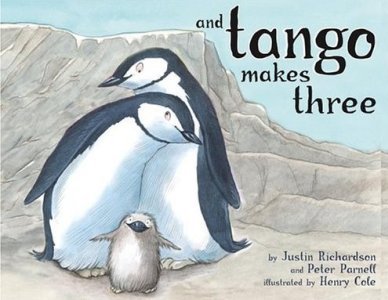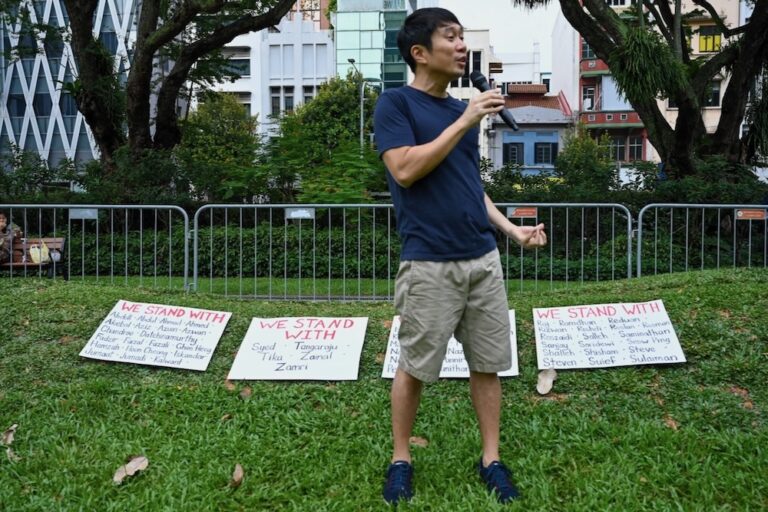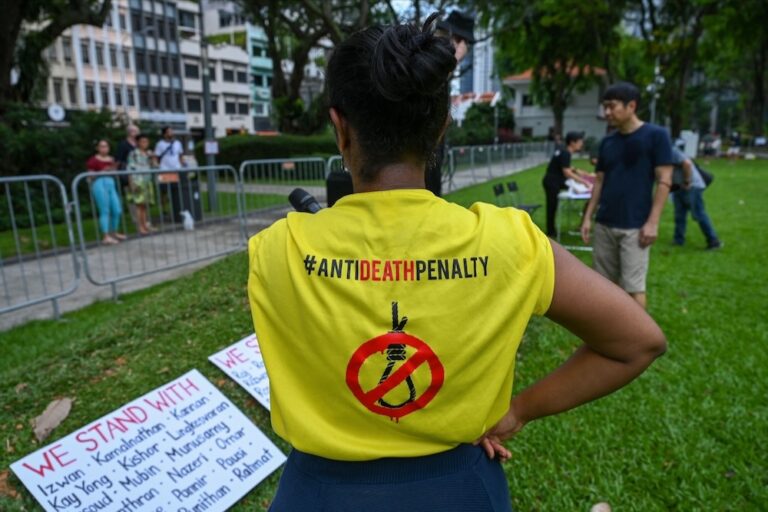"And Tango Makes Three" is a children's book about two adult male penguins who hatch an egg and raise a youngster. In the view of Singapore's National Library Board, it's dangerous enough to get pulled from the shelves, along with two other books that also fell under the board's censorious eye.
By Graeme Reid
And Tango Makes Three is a children’s book about two adult male penguins who hatch an egg and raise a youngster. It is based on the true story of two penguins, Roy and Silo, of New York’s Central Park Zoo. And, in the view of Singapore’s National Library Board, it’s dangerous enough to get pulled from the shelves.
It wasn’t only And Tango Makes Three that fell under the board’s censorious eye – two other books, The White Swan Express: A Story About Adoption and Who’s in My Family?: All About Our Families were also pulled from circulation.
Reading the story of Roy and Silo, it’s hard to see what the controversy is about. But Singapore’s minister of communications and information, Yaacob Ibrahim, supported the decision of the National Library Board, saying its “approach is to reflect existing social norms, and not to challenge or seek to change them.”
“Child-protection” is often cited around the world as a reason for censorship. That is the raison d’être of Russian legislation enacted in 2013, which outlaws “propaganda of non-traditional sexual relations amongst minors.” And for its antecedent: British Prime Minister Margaret Thatcher’s “Section 28” of the Local Government Act of 1988 that outlawed “promoting homosexuality” or the “acceptability of homosexuality as a pretended family relationship.” One of the sparks for the iniquitous Section 28 was an innocuous book available in a school library: Jenny Lives with Eric and Martin.
South African 1991 Nobel Prize in literature winner, Nadine Gordimer, who died Sunday, had this to say about censorship: “Censorship is never over for those who have experienced it. It is a brand on the imagination that affects the individual who has suffered it, forever.”
This is true for everyone, but for kids who will grow up gay or lesbian or bisexual or transgender, this has particular resonance. Censoring books, for no other reason except that they include same-sex relationships, sends a strong and negative message that “gay is not okay” even among penguins. According to article 13 of the Convention on the Rights of the Child, “The child shall have the right to freedom of expression; this right shall include freedom to seek, receive and impart information and ideas of all kinds.”
LGBT children, who are subject to disproportionate rates of bullying, and often experience feelings of isolation and alienation, are in desperate need of reliable, accurate and affirming information. As do kids from families who have same-sex parents, just like the penguins. Singapore’s libraries should aim at promoting inclusion and understanding rather than accepting discriminatory exclusion.



